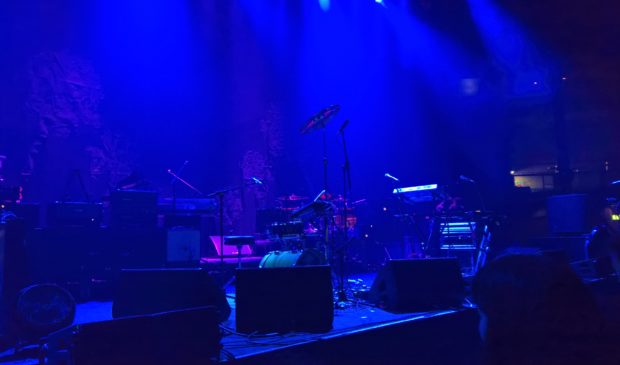City looks for funds, including hotel tax, to cushion COVID-19 economic impact
Friday, March 20, 2020 by
Chad Swiatecki City staff and members of City Council have fine-tuned their plans for assisting small businesses and employees facing financial difficulties from the cancellation of South by Southwest and other fallout from the COVID-19 outbreak.
Council Member Jimmy Flannigan posted a draft resolution on the City Council Message Board Thursday directing staff to create or use programs that can limit the impacts to the local economy, specifically identifying musicians, music venues and other components of Austin’s creative industry that earn much of their annual income during SXSW.
Suggested options for funding sources include possible uses of Hotel Occupancy Tax revenue or delaying needed payments to that fund, working with Workforce Solutions Capital Area to activate applicable economic development programs, and providing assistance to help secure state and federal disaster funding to eligible parties.
Flannigan said since taking up the local aid initiative last week – when it was narrower in scope because the impact of the virus spread was thought to be limited – he’s been encouraged by the options the city has to use programs funded through federal and state money that can be used all at one time instead of over several years as originally planned.
He said larger relief efforts could require tens or hundreds of millions of dollars from state and federal coffers, which made protecting Austin’s cultural economy a priority for using local dollars.
“The way we structured the resolution is for public health first, and second is realizing there are industries in Austin that are uniquely affected, to make sure we’re including them in the work,” he said. “One of the things we hear from the music community is it’s not entirely clear how musicians can access unemployment benefits since they are not employees. There are things the city can do for the smaller universe affected by South By, but when we start to broaden that wider it does require state and federal assistance.”
Other leaders in the local creative economy have spent the past weeks gathering data from business owners about their financial prospects and likelihood of closure. Rebecca Reynolds, president of the Music Venue Alliance, said the monthly overhead for those businesses minus payroll starts at around $20,000 and climbs to $100,000 for some downtown venues.
Her main focus over the past week has been trying to broker a delay or total exemption for venues’ March state liquor tax bill with the state comptroller’s office, which is due today and represents the second-highest monthly expense for most of the businesses after their rent payment.
“This is the bill that matters because they need to keep that money in their pockets right now to pay employees with,” she said. “It’s been hard to get direction on what to do with that bill. Some people have already sent those payments in and are trying to get them back, and I’m waiting for answers.”
With hotel tax revenue singled out as a possible source of funding, a proposal put forward by John Riedie, president and CEO of the Austin Creative Alliance, is likely to receive some attention.
A main plank of Riedie’s proposal would use a portion of the reserves set aside to cover costs for the Austin Convention Center and allocate that money to music venues, artists and other cultural workers who are likely to see severe drops in their annual income this year. Because of state laws governing how hotel tax revenue can be used, those allocations would have to be categorized as marketing expenses related to promotion of the city’s tourism industry.
“Whatever Council passes should direct city staff to look at everything. The question is, how much internal political wrangling are people willing to do?” said Riedie, who spearheaded an unsuccessful ballot measure last year that sought to place limits on how the city could use hotel tax money related to the convention center.
“To enable direct payments to cultural workers, the city could designate them part of the tourism industry and support them directly. That’s a big political climb and I’m pretty pessimistic on getting quick action based on the past, but if everyone in the cultural industry sticks together and point out that we’re largely responsible for a successful tourism hub and tourism economy, and we deserve support so the cultural industry still exists when we pull out of this … that’s the key.”
Photo by Dilated Time made available through a Creative Commons license.
The Austin Monitor’s work is made possible by donations from the community. Though our reporting covers donors from time to time, we are careful to keep business and editorial efforts separate while maintaining transparency. A complete list of donors is available here, and our code of ethics is explained here.
You're a community leader
And we’re honored you look to us for serious, in-depth news. You know a strong community needs local and dedicated watchdog reporting. We’re here for you and that won’t change. Now will you take the powerful next step and support our nonprofit news organization?








